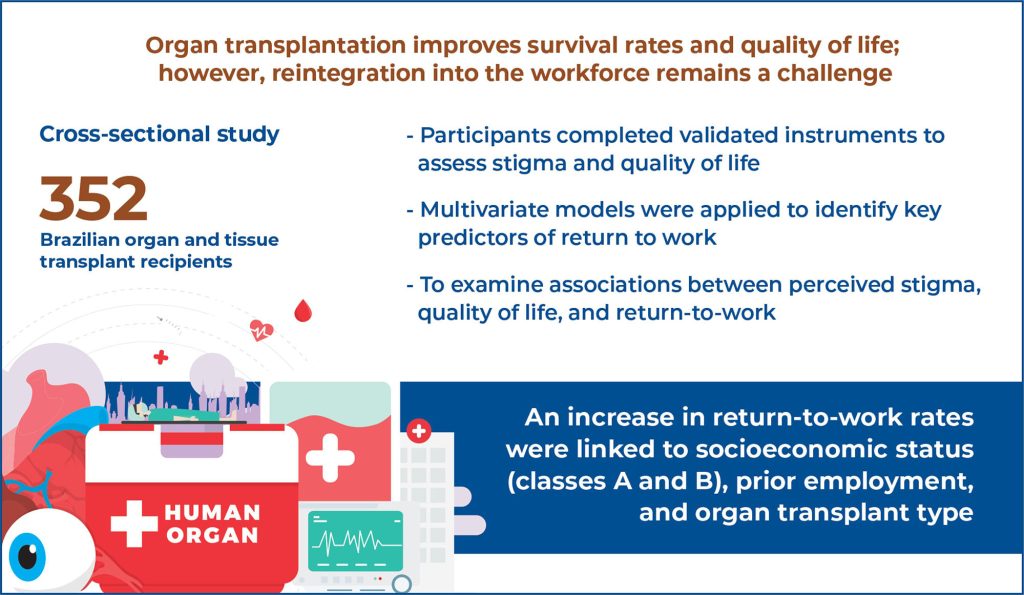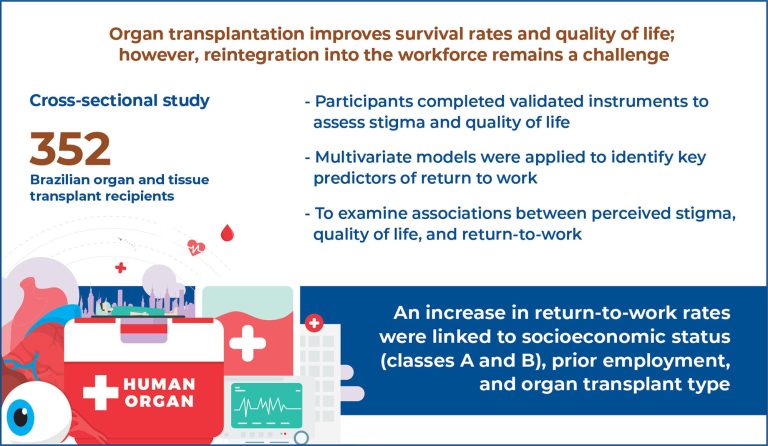einstein (São Paulo). 31/Oct/2025;23:eAO1737.
Stigma, quality of life, and return-to-work outcomes among organ and tissue transplant recipients in Brazil: a cross-sectional study
DOI: 10.31744/einstein_journal/2025AO1737
Highlights
■ The return to work rate was 53.7%, with slower and lower reintegration among low-income recipients.
■ Individuals with higher socioeconomic status (Classes A and B) were over twice as likely to return to work compared with lower socioeconomic status.
■ Higher stigma scores were significantly associated with reduced quality of life in Functional Capacity, Mental Health, and Social Functioning domains (p<0.001).
■ Older age (≥51 years), racial disparities, and unemployment before transplantation were strong barriers to occupational reintegration.
■ Quality of life scores in transplant recipients were consistently lower than those in the general population, with Emotional Role scores reduced by more than 50 points.
ABSTRACT
Objective:
Organ transplantation improves survival rates and quality of life; however, reintegration into the workforce remains a challenge. Therefore, this study examined the relationship among return-to-work, quality of life, and perceived stigma in Brazilian transplant recipients.
Methods:
This cross-sectional study assessed stigma, quality of life (using the Short Form-36), and employment status in 352 transplant recipients. Statistical analyses included Kaplan-Meier survival curves, regression models, and factor analysis to identify key return-to-work and stigma determinants.
Results:
The average return-to-work rate was 53.7%, with socioeconomic class, prior employment, and organ transplantation type positively influencing return-to-work. Stigma negatively impacted return-to-work and quality of life, especially Functional Capacity and Mental Health. Older age, racial disparities, and socioeconomic inequities were significant return-to-work barriers.
Conclusion:
Return-to-work was observed in 53.7% of transplant recipients, with rates declining over time. Higher return-to-work was associated with pre-transplant employment, higher socioeconomic status, and organ transplant type. Stigma negatively impacted both return-to-work and quality of life. Return-to-work disparities were evident in terms of age, race, and income. Pre-transplant employment has emerged as the strongest return-to-work predictor. Overcoming these structural barriers is essential for optimizing long-term outcomes and ensuring that transplant recipients fully reintegrate into their occupational lives.
[…]
141



